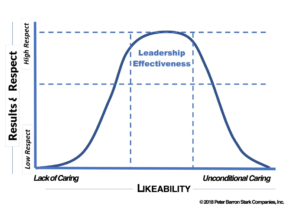Employee Engagement, Leadership
Six ways to show you care about your employees
How often do employees wonder to themselves – Does my manager even care about me, or am I just a way for him to find success? Where’s the balance between my human-ness as a worker, and my value and skills?
I’ve spoken to many managers about this workplace scenario. One recent conversation went, “You’re concerned that I need to care about my employees. Why is it necessary that I genuinely care about my team members?”
Considering the consistency this question comes up with my clients, I know a majority of managers have struggled with this dilemma; For some, it’s not natural to express personal concern and gratitude for employees. Some managers will justify their lack of being a vulnerable or compassionate leader by saying to themselves, “That’s just not my leadership style,” and might go on to add, “I am not a soft, emotive type of person. I’m here to do a job.”
So the real question should be, is there an issue with only being focused on the results of your management, and not on the relationship with the team members? Furthermore, what’s the downside for a leader who isn’t perceived as caring about his team members?
Like most questions in life, the answer probably falls somewhere in the middle. To be a successful leader, you almost always need to find the sweet spot of balancing care for your team members and your focus on results. The diagram below helps to put this balance into perspective.
So how do employees perceive if their leader isn’t invested in their well-being? Here are some frequent behaviors identified by listening to employee’s concerns:
- Managers don’t listen to what their direct reports are trying to convey
- Managers don’t have time to spend with the employee or check-in with genuine interest about their direct reports
- Managers don’t include employees on important meetings or topics
- Managers play on their phone or answer email instead of being mentally present with their direct reports
- Managers are late on an employee’s performance review, or don’t provide one at all
- Managers don’t have empathy for an employee’s work-life balance or when the employee is going through a difficult or challenging time.
Balancing Productivity and Personalization
Here’s why it’s so important that leaders genuinely care about their direct reports and others they work with within their organization; If a leader does not genuinely care about their team, there is a strong possibility that the employees will not care about the leader, the team or the organization. When people succumb to apathy, it almost always impacts the quality and productivity of their work, especially in the areas of discretionary accomplishment. To obtain desired results, you need relationships; therefore, if the manager does not care about the employee, and in return, the employee does not care about the manager, what basis do you have for a successful business relationship?
Tips for Connecting with Employees
Here are six simple behaviors that will get you into the sweet spot we describe in the diagram above and help demonstrate that you genuinely care.
- Be present. Actively listen for what your employees think, feel and find out what support they need from you. Managers tend to be good tellers. Many managers stop asking their employees questions because they believe they already know the answers about what their employees think. By asking questions and truly understanding what your employees think, feel and what support they need from you, people will know you care.
- Don’t wait to motivate. Great leaders take action. If your employees tell you they need more communication from you, set up a weekly or bi-weekly team meeting. (And consistently hold the meeting!) We work with some leaders who eventually set a team meeting, only to cancel it when something the manager perceives as more important comes along. If you are going to cancel your team meeting, quickly get it rescheduled. Giving this time to your employees, especially when they have given you feedback, tells them they are important and you genuinely care.
- Participate: When you are in the presence of other team members, such as attending a meeting, be focused and be engaged. It tells people you are interested in what they have to say and they’re important.
- Make time. Caring leaders know that when an employee needs their time or support; this is part of their job, and why managers are put in their positions. If no employees ever needed support to get their work done, there would be no need for a manager. When you give an employee your time, you are telling them they are important and you care.
- Support the work-life balance. Compassionate leaders support an employee’s work-life balance because while they know it is the right thing to do, when an employee does not have good work-life balance, bad things happen that usually have a negative impact on the job. When an employee has a personal situation, such as a birth or death in the family; an illness, a birthday, an accomplishment, etc., there is no better way to show you care than to acknowledge the situation and ask the employee if there is anything you can do to support them.
- Show gratitude. One of the best ways for leaders to demonstrate care is by thanking team members for their contributions and telling them they are grateful for the success they bring to the team. When your feedback is genuine, people know that you care.
As a leader, if you want people to be fully engaged and truly care about your success, the team’s success, and the organization’s success, then it is vital that, as a leader, you genuinely care about others success. Remember this quote – No one cares how much you know or how much you are right…until they know and feel how much you genuinely care.












Leave a reply